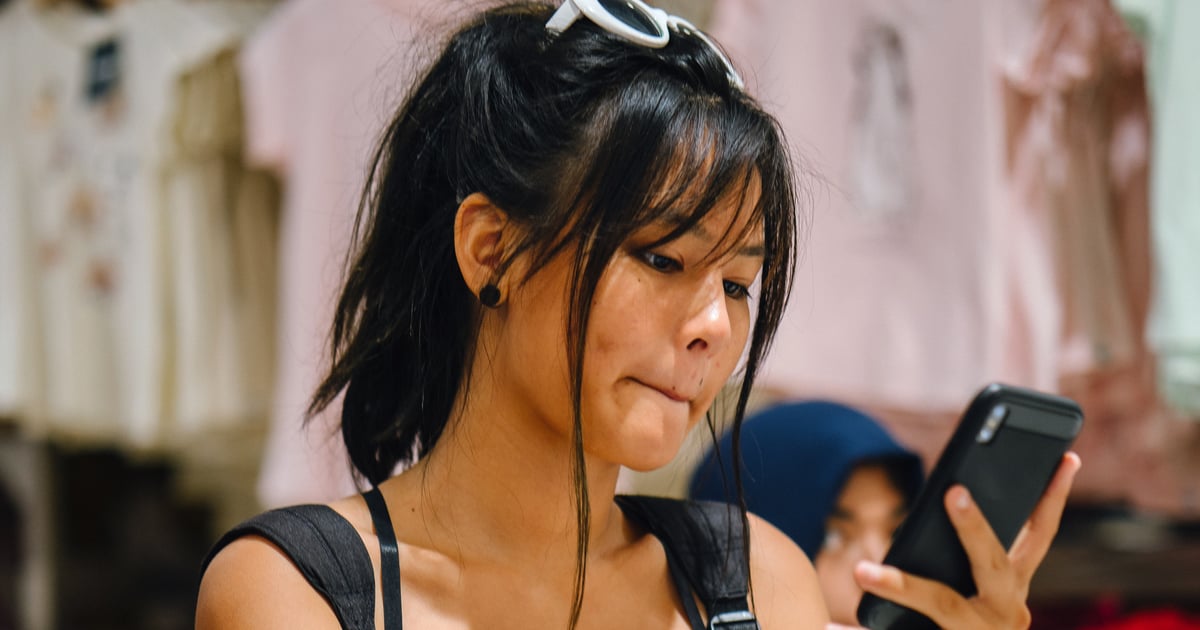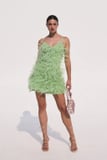
January 14, 2021 at 04:16PM
The novel coronavirus pandemic and racial reckoning that has taken place in the last several months has made purchasing from socially mindful brands more important than ever. Supporting small and local businesses could directly help out a struggling business owner, and prioritizing Black-owned labels is a great way to raise awareness and amplify the Black community.
Even before the pandemic, I considered myself a conscious shopper. I shopped BIPOC-owned businesses and supported eco-conscious brands that do not harm animals when making products. But if I’m honest, I spent very little time learning about the products I was considering. I rarely looked at care labels or read up on the history of the brand’s work with marginalized communities or respect of labor workers. Researching ethical information can be time consuming and difficult to process, and it is common for consumers to remain willfully ignorant of it.
My ignorant behavior showed as I continued to use Amazon Prime and react to social media shopping trends. And lately, I’ve been struggling with the guilt that comes with this; supporting big-name brands over local ones and choosing items from companies that go against my ethics. So answer me this: is it bad to shop brands that go against your values? And how can we navigate this tricky situation surrounding our morals? To help with this dilemma, we spoke with experts to get some ideas and came up with an easy checklist system for improvement.
Develop a Value System
Author and fitness model Rachel Werner recommended maintaining a hierarchy of values as a guideline for striving to be a conscious consumer. Values may include the environment, labor practices, supporting small businesses, or shopping Black-owned businesses. “Being mindful of your priorities and what your nonnegotiable items are will lead you on the right path,” Sara Shah, cofounder of ethical beauty brand Journ, told POPSUGAR. “For some people, their core values may include racial justice at the top, and others could have small brands or animal protection,” Werner noted, continuing, “The great thing is people can’t tell you what should be at the top. You get to decide that on your own.” Try writing out your own checklist for some clarity.
Vet Out Potential Controversy
I get it: deciphering the accuracy of brand statements can be overwhelming. You may purchase from a brand that showed interest in sustainability, only to find out somewhere along the supply chain, acts were not completely sustainable. Or you may support a brand and later discover its violation of child labor laws. That feeling of betrayal will make you immediately want to boycott these brands.
“Pretending it is not complicated and that it’s easy is not the solution,” Werner said. “Sometimes what companies are putting forth isn’t necessarily a complete picture of what’s going on behind the scenes. Often we only find out the truth from a whistleblower.” If a fashion brand’s website or social media pages are unclear, take research into your own hands. Werner advised typing a company’s name into Google and entering “+ harassment” or “+racism” to see what populates.
Decide On a Comfortable Price Range
In many ways, shopping brands that align well with your values is a privilege, because not everyone has the income to do so. With your top priorities in mind, you will then need to weigh the financial investment against the values that may fall lower on your hierarchy. “If it’s going to burden your finances, family, mental health, or well-being, you need to decide if it’s worth it,” Shah warned.
Unsubscribe From Newsletters
I enjoy using social media as a tool for discovering trends and affordable fashion pieces from my favorite influencers. However, shoppable content on Instagram usually leads me down a rabbit hole of subscribing to multiple retailers to get first-time shopper discount codes. This yields to a plethora of weekly (sometimes daily!) emails from brands. It can be challenging to end a bad habit (in my case, overconsumption) when you are constantly bombarded by it.
Ayesha Barenblat, CEO and founder of Remake, an organization dedicated to making values transparent, recommended simple adjustments like “unsubscribing from mailing lists of fast fashion brands so you’re not inundated with emails you don’t need or tempted to shop brands that go against your ethics.” Spending less time doom scrolling influencer shopping content on Instagram is another great start.
Research the Manufacturing Process
Short-term attractions (a flash sale on Instagram) and lon- term goals (minimalism) are often mutually exclusive. Consumers both want to be ethical and ignore ethics. We care about issues like climate change and fair trade, but often avoid finding out whether our apparel was made with harmful chemicals or by a garment worker who was paid improperly. Of course, sometimes we don’t know whether a purchase was unethical until after the fact. According to Mir Anwar, cofounder at Journ, the best thing you can do is learn and try to improve. “Guilt is a human instinct – it’s important to learn how to recover instead of dwelling on your previous decision.”
I’m finding that educating myself on future purchases is a much better use of my time and energy than feeling guilty for what I’ve done in the past, both subconsciously and consciously. As I redefine how I shop, I’m more in tune with the types of questions I need answered to satisfy my hierarchy of needs. As time goes by and you continue to strengthen your value muscle, you’ll develop new and better habits with fewer slip-ups. After all, it’s OK not to be perfect all the time.
More Celeb News
Author Natasha Marsh | Popsugar
Selected by CWC
ADVERTISEMENT
ADVERTISEMENTUp to 30% off Gift Sets |








